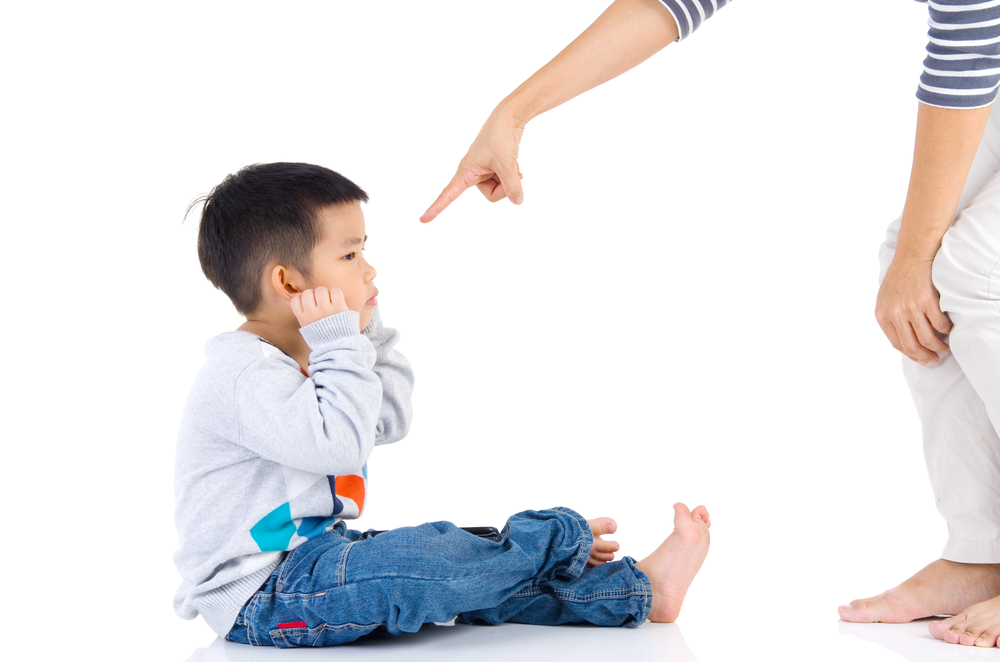
What started out as angels sent from above will eventually grow up with a mind of their own. As children develop, their behaviour changes – and so does the various discipline methods that parents use.
Regardless of which style of parenting you adopt, effective discipline involves practicing empathy and helping your children learn right from wrong. Think of discipline as behaviour management, where you help your children learn how to behave appropriately, according to their age.
To help you navigate through this subject on how to discipline a child, here are some age-appropriate child discipline methods you can consider using.
Child discipline methods for toddlers to teens
1. Toddlers (Ages 2 to 4)
At two, toddlers have very limited vocabulary. Most of the time, toddlers misbehave because they cannot clearly express themselves, which is frustrating for them, and hence the tantrums.
Discipline methods that may work:
Giving them options
At this age, offering them two choices more than suffices. This makes them feel in control as they have a say in their lives.
For example, you can give them options when it comes to dressing up – “Do you want to wear a skirt or pants?”.
Time outs
While there’s been much debate on the effectiveness of time-outs, removing toddlers from the activity for a very brief period helps them to calm down. Be clear and use simple words to explain the wrong behaviour. At two, time outs should only last for two minutes (and progressively) and up to a maximum of five minutes.
Read also: Toddlers and the Terrible Twos: What is it and how to cope
2. Preschoolers (Ages 4 to 6)
In this age group, preschoolers’ communication skills are rapidly advancing and they are now better at following instructions and understanding consequences. And because they are learning so much more about the world, they also have a lot more to deal with which may sometimes overwhelm them, leading to poor behaviour.
Discipline methods that may work:
Positive reinforcement
Encourage repetition of good behaviour by using positive reinforcement. What this means is to reward or “catch” good behaviours by giving a child extra privileges or tangible rewards. For example, if your child cleans his room without being asked, take him to the playground as a reward. Following this, he may be more motivated to clean his room the next time.
Be a positive role model for your child
Just as children learn good things from parents, they will also pick up parents’ bad habits. So be sure to keep your cool, otherwise, your child may pick up negative behaviour from young.
3. Primary schoolers (Ages 7 to 9)
Now that they are much better able to express themselves, children in this age group are also better at demonstrating self-control. So, it is imperative to lay down a strong foundation for future positive behaviour.
Discipline methods that may work:
Meaningful consequences
This is a cause-and-effect strategy where you can help your child learn “if…then”.
For instance, if your eight-year-old is late for school because of late nights, then bedtime should be earlier the next few nights instead of taking away her privilege of watching TV. Usually, the best consequences are where your child learns something out of it.
Calm down
Give your child a chance to explain what the poor behaviour was and what you’d like to see instead. This helps children see the cause and effect.
4. Tweens (Ages 9 to 12)
This is a tough age group to be in. Changes happening in the tween brain causes increased impulsivity and heightened emotions, leading them to get excessively angry or sad and sometimes out of proportion.
This stage of development is much like the “terrible twos” where poor behaviour is a part of how they are developmentally wired. At this age, tweens also transit to form their own identities.
Discipline methods that may work:
Involvement
Involving your tween when setting rules and boundaries will help both sides listen and understand each other’s perspectives better. And be flexible and compromise where you can as this will garner you more cooperative behaviour in the future.
Negotiate later
There is no need to react immediately to a poor behaviour. Be firm, then negotiate later when everyone has calmed down. It is important to choose which issues to address in more depth later.
5. Teens (Ages 13 to 19)
Apart from brain development, hormonal changes are also taking place at this age, putting teens out of control of their own behaviour.
The fight for independence continues from their tween years, and now there is a stronger need for a sense of belonging, identity and self-image. Not forgetting the manipulation that peer pressure brings along where teens will try to push boundaries and break the rules.
Discipline methods that may work:
Cultivate strong bonds
Teens are notorious for their inability to regulate their emotions, hence the seemingly constant moodiness. But it is also precisely why building a healthy and trusting parent-teen relationship during the teenage years becomes more important.
Spending quality time together is a great way to build a strong bond. Simple gestures like grabbing an ice-cream together can make a huge difference to a teen as it sends the message that parents take a genuine interest in their lives. Listening is also another way that allows teens to steer the conversation in the direction that they desire.
The key here is to listen with an open mind and be slow to respond as any hasty reaction may potentially close-up a teen in the future.
Setting boundaries
At this age, teens still require some rules or boundaries to keep them in check. What is important at this juncture is that the rules centre around health and safety.
Giving your teen the benefit of the doubt and the right to explain are important as this build up trust and responsibility.
Read also: 6 Positive Ways To Discipline Your Child
Above all, these child discipline methods won’t work if they are not done with love. How you discipline your children largely depends on how much love children feel from parents, regardless of which age they are at.
Keep in mind that unconditional love doesn’t mean unconditional approval. You can still discipline your child while showing that you won’t withdraw your love based on their behaviour.























